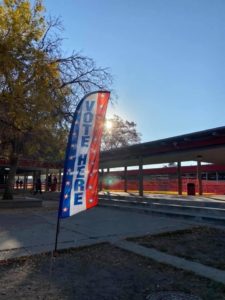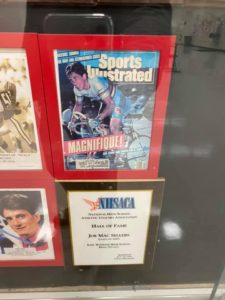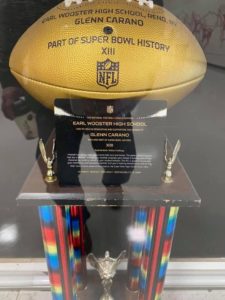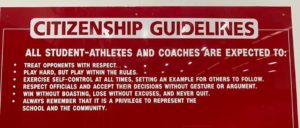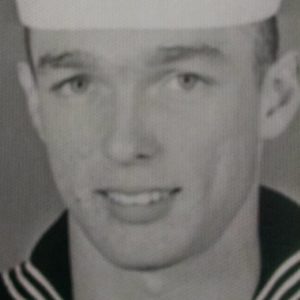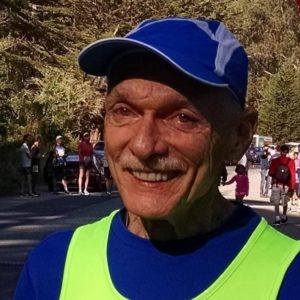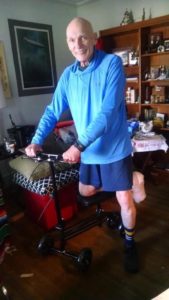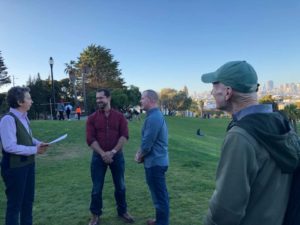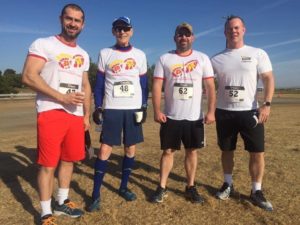Written Nov. 3, 2020
If you are assigned to a high school for poll monitoring and arrive early, you’ll have some time to peruse the trophy cases to learn a little bit about what makes the school shine. Wooster is all about football and basketball; the Rifle Team, on the other hand, hasn’t won anything since 1992. You’ll also get a glimpse of some of the remarkable people who once roamed the halls, and oh boy, Wooster doesn’t disappoint. Glenn Carano was a Wooster student and he went on to quarterback for the Dallas Cowboys in Super Bowl XII. And, incredibly, so was Greg LeMond, three-time Tour de France winner and one the greatest American cyclists of all time, if not the greatest.
Today Wooster saw no shortage of remarkable people, starting with the volunteer poll workers. The Wooster polling location was formally “adopted” by The Holland Project, a youth-founded organization promoting the arts and music. They adopted the polling location and staffed it with young people not only to do their part in the election, but to alleviate the need for older volunteers who would be more vulnerable to COVID-19. The poll manager proudly announced that we were at an adopted polling place when it opened at 7 a.m. And then came the voters. Maybe because today is so momentous, they seemed particularly remarkable in their determination to vote. An elderly man who couldn’t hear and struggled with a cane came to drop off his ballot, worried it was too late for the mail. Parents lugged babies and toddlers. A mom and dad brought their daughter and announced she was a first-time voter. In fact, whenever a first-time voter was checked in, the poll workers would yell “first-time” voter and everyone would clap. There were lots of them, probably former Wooster students. And then a man came in wearing hospital garb, no hair, thin as a rail, only able to walk because he was holding onto someone’s arm, smiling though, determined. It was clear he would be going back to the hospital after voting. In these moments, your mandatory mask can be used to dry tears.
The polling place was organized, efficient, busy, and friendly – all the things a news crew wouldn’t be interested in. One did show up; they captured some stock footage and left quickly. Honestly, the only dark cloud was a grumpy poll observer from the RNC who showed up only briefly but made a big impression, accusing a sprightly young volunteer of telling voters how to vote (completely without basis), grumbling some complaints about fraud to someone who would listen, and then leaving the school but not before plastering Trump stickers all over a voter information sign. That was quickly reported and the poll manager went out to remove the stickers.
A friend asked me yesterday if poll observing was more like watching paint dry or playing golf (an unfair dig at a sport, which, by the way, is one in which Wooster has shined – in both men’s and women’s). Today it felt like a privilege to watch democracy unfold in one small corner of the country, in this case a high school gymnasium in Washoe County Nevada. Even though the Wooster gymnasium was scattered with voting machines instead of basketball players, the “Citizenship Guidelines” posted on the wall seemed particularly apt for this voting year.
